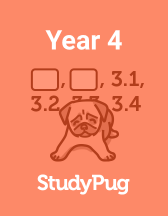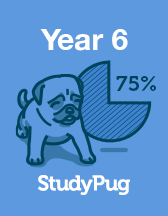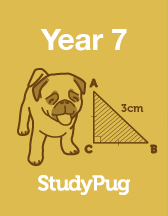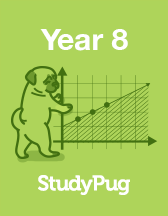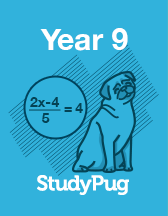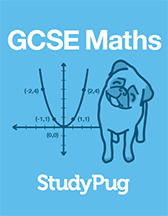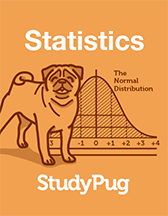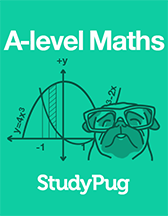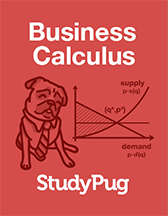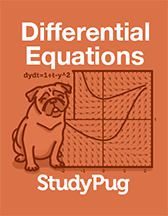Master A-Level Maths
Step-by-step solutions for exam success and university prep
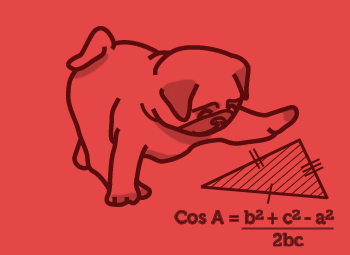
📈
A-Level maths marks improve 10-15%
✨
Pure mathematics mastery
💡
Statistics and mechanics confidence
📚
University mathematics preparation

Step-by-Step Solutions
Master pure maths, mechanics, and statistics

Perfect Curriculum Match
Aligned with your specific A-Level exam board requirements

Guaranteed Results
Most students improve one letter grade in 4-6 weeks
Year 12 Maths Topics
Linear Equations
Linear Inequalities
Inequalities in Two Variables
Introduction to Relations and Functions
Linear Functions
Absolute Value Functions
Solving Simultaneous Equations
Factorising Polynomial Expressions
Quadratic Functions
Quadratic Equations and Inequalities
Polynomial Functions
Surds
Laws of indices
Algebraic Fractions
Functions
Transformations of Functions
Reciprocal functions
Exponential Functions
Logarithmic Functions
Applications of Exponential and Logarithmic Functions
Circles and Parabolas
Introduction to Trigonometry
Trigonometry
Sine Rule and Cosine Rule
Bearings
Graphing Trigonometric Functions
Trigonometric Identities
Sequences and Series
Set Theory
Probability
Permutations and Combinations
Statistics
Data and Graphs
Parametric Equations and Polar Coordinates
Limits
Differentiation
How Can I Pass A Year 12 Maths Exam?
To help you obtain a passing grade in your year 12 maths exam, you should be doing maths revision on a regular basis. Try and take the time to get yourself into a weekly study routine that involves reviewing your class notes (which if you're not taking, you should be!), working on homework assignments, and testing your knowledge via online maths aids like worksheets and past year 12 maths exam papers.
Use these past papers to build your confidence and improve your time management ahead of your actual exams. Assess how long it takes for you to answer questions and see how long you should realistic spend on each section. If a section proves to be too difficult, skip it and come back to it later. It's more important to get through the paper, answering as many questions as possible, so don't waste time on one problem.
Using these past papers, you can also single out any topics that are giving you trouble. By Highlighting these weaker areas, you will able able to build much more effective revision strategies.
Once you know where you need to improve, use StudyPug for some additional year 12 maths help. You can find the lesson you need help with via the easy to use search function and from there, we'll help you tackle the problems by introducing step-by-step examples that work to build your understanding.
Our year 12 maths tutors will cover all the complicated A level maths questions and we've made sure that our content reflects the current Year 12 maths curriculum and the A level maths syllabus. You'll also have access to your very own study planner that you can use to track your progress and keep you moving towards your goals.
Once you're comfortable using our videos to study maths, try sitting additional past papers and attempt more worksheets to chart your progress. You'll soon see improvements in your performance and you'll be in a much better position to pass your upcoming exams.
Finally, when you're actually in your exam, please keep in mind that the external markers will be looking for proof that you understood the problem. They want to see that you knew how to solve the problems beyond memorizing formulae and other tools. Where possible, show your working out! This will show them your thought process and your mathematical reasoning abilities. In doing so, you may earn additional marks and receive a bump in your final grade.
Should I Try to Take an A-level Exam Early?
If you feel confident enough to take the test ahead of time, you can, but please be aware that it's not necessarily something that will help you in your university applications. The UCAS points you earn will still count towards your overall UCAS score, but keep in mind that universities are looking for more than just UCAS points.
The Russell Group, an association of United Kingdom-based universities, founded in 1994, had this to say in regards to taking A-levels early and how it may impact your university applications.
Some universities or their individual subject departments may want to see that you have taken a number of Advanced level qualifications all at the same time; for example, they may want to see three A-levels taken in Year 13.
This can be because they want to know that you can comfortably manage a workload of this size… Admissions policies may therefore differ in relation to A-levels taken early, and whether these are included in offers made or not.
For example, some courses that typically make a conditional offer of AAB may take account of an A-level A grade achieved at the end of Year 12 and, as a result, make a conditional offer of AB for A-levels taken in Year 13. Others may still make a conditional offer of AAB on subjects taken at the end of Year 13 and will not include the A-level already taken in their conditional offer.
What Units Will I Study in A-Level Maths?
Choosing to study A level maths will not only benefit your university applications, but a qualification in A-Level maths, will help you in your future career too. It demonstrates to potential employers that you have the ability to apply analytical thinking, finding logical solutions to solve a variety of problems.
We're not suggesting that employers are specifically looking for a candidate that can solve maths equations or knows how to calculate angels (unless it's an architectural role), but they'll certainly see the value in the various transferable skills that are associated with solving those problems.
Once you've decided to study A/AS-level maths, you'll need to narrow down that actual units you'd like to cover throughout the program. Within A-Level mathematics, there are two different programs of study.
Firstly, there's AS Level maths, this is a one year course that will cover 2 core maths units plus one additional unit from either mechanics, decisions, or statistics. If you decide to study a full 2 year A-level course, you'll cover all 4 core maths units plus two additional units.
With this in mind, you should select the optional units that will benefit you best in your future university applications and career. For example, if you're looking to enter into engineering, you may want to consider studying mechanics.
To give you an idea of what to expect, here is a breakdown of topics you'll likely cover in the three optional units (not a complete list).
Statistics
- Statistical models
- Summarising data
- Probability
- Correlation and Regression
- Discrete Random Variables
- Continuous Random Variables
- Continuous Distributions
- Hypothesis tests
- Combinations of random variables
Mechanics
- Vectors
- Kinematics
- Dynamics
- Statics
- Moments
- Centres of mass
- Work and energy
- Collisions
- Statics of rigid bodies
Decision
- Algorithms
- Algorithms on graphs
- Route inspection
- Critical path analysis
- Linear programming
- Matchings
- Flows in a network
